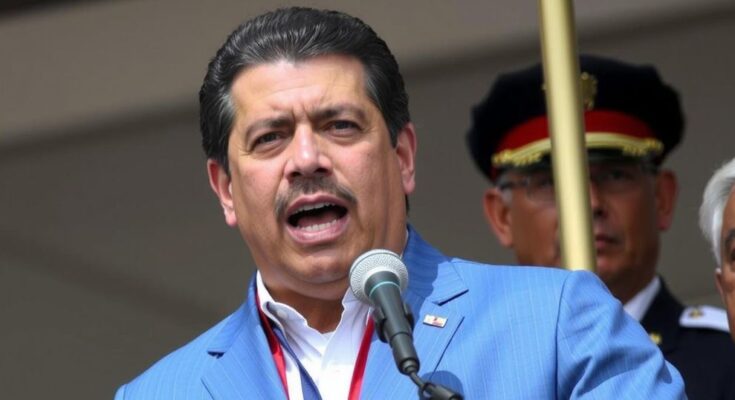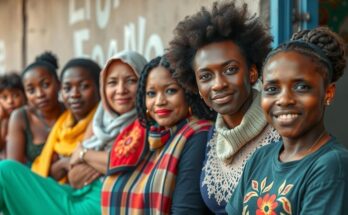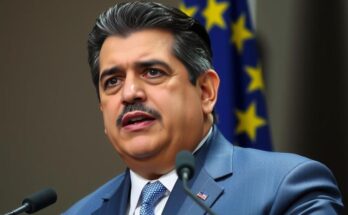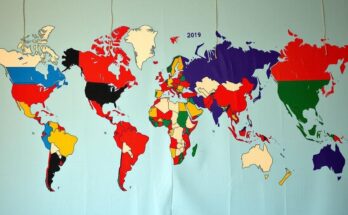Despite widespread protests and claims of electoral fraud, Venezuelan President Nicolás Maduro is poised to be sworn in for a third term, extending his presidency until 2031. Opposition leaders contest the election results, claiming victory for Edmundo González, while international figures condemn the government’s oppressive actions against dissent.
President Nicolás Maduro is set to be sworn in for another term on Friday, extending his controversial and increasingly authoritarian governance in Venezuela until 2031. This comes despite substantial evidence that his rival, Edmundo González, won the most recent election, alongside widespread protests against Maduro’s attempt to secure a third six-year term. In the capital, Caracas, hundreds of demonstrators engaged in protests calling for the inauguration of González instead. On Thursday, opposition leader María Corina Machado faced harassment, including a brief detention, as she rallied supporters to lead the call for Maduro’s removal.
The Maduro administration has faced severe international scrutiny due to allegations of electoral fraud, particularly after the electoral authorities proclaimed him the victor without presenting a transparent vote count. The opposition claims to have collected credible evidence indicating González received significantly more votes than Maduro, leading to an uproar among citizens and global observers calling for a transparent audit of election results. Despite the claims of fraud and the brutal crackdown on dissent, Maduro’s inauguration appears largely uncontested, as many Western leaders plan to boycott the event, including Colombian President Gustavo Petro. Notably, Maduro’s previous inauguration in 2019 was viewed under similar shadows of electoral illegitimacy, making the legitimacy of the upcoming ceremony questionable.
Venezuela has been embroiled in a political crisis that has only worsened under Nicolás Maduro’s rule, characterized by allegations of election rigging, human rights abuses, and a significant crackdown on opposition voices. The legitimacy of Maduro’s leadership has come under fire, especially following the election conducted in July, where electoral authorities provided no transparent vote count, raising suspicions of widespread electoral manipulation. Opposition leaders, like Edmundo González and María Corina Machado, have faced threats, detentions, and even exile as they challenge the Maduro regime. The existing social and economic turmoil in Venezuela further complicates the political landscape, with citizens increasingly demanding accountability and a return to democratic processes.
In conclusion, Nicolás Maduro’s anticipated swearing-in ceremony on Friday marks not only a significant extension of his controversial rule but also reflects the broader issues of electoral integrity and human rights violations in Venezuela. The potential for international condemnation continues to loom, especially as the authenticity of the recent electoral process remains under scrutiny. The actions of the Maduro administration against opposition figures such as María Corina Machado and Edmundo González amplify a concerning narrative regarding the lack of political freedoms in the country. As protests continue, the absence of international support further raises questions about the future of democracy in Venezuela.
Original Source: abcnews.go.com




